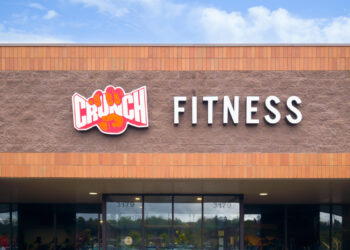The typical club averages 3 – 7 percent returns on their monthly EFT and credit card electronic billing transactions. This means you’re really only receiving 93 – 97 percent of your projected gross billing. So, if your projected billing is $50,000 per month, and you actually receive 95 percent, that’s $47,500. That’s $2500 of revenue uncollected for the month, $30,000 annually. Let’s see, that’s equivalent to about seven brand new treadmills.
Following up on delinquent accounts is critical, and, too often, clubs mean well but leave money on the table, unnecessarily. Unless you can do the job effectively in-house, you should seek out a company that specializes in membership collections, ideally a truly integrated solution.
Shop around. There are wide variations in quality among collection agencies. Ask for references. Ask your friends in the industry who they use. You can even go so far as to put yourself into collections to find out how diligent an agency may be.
A good agency will receive your returns file directly from the billing company, without you having to receive and retransmit it, which could result in unnecessary delay. The solution should be simple, inexpensive and effective. A series of mailed letters sent out, the first one within 48 hours of notice of delinquency, to ensure maximum response. The letter should contain a return envelope, an 800 number to call, and the option to pay online. Mailers should be accompanied with phone calls, or they’re just not effective. The old adage in collections is “the older they get, the colder they get,” so you need something that’s quick and responsive.
To treat your members’ right, the agency should either specialize in membership collections or should have designated collectors handling only membership items. Make sure they understand the goal is not just to collect the money owed, but also to get new billing information so you can restore those members to good standing. Ideally, you will have a designated, qualified point person for your facility that will know your policies and some of your employee names when communicating with members. Failure to do so can actually result in confusion and bad will in your community.
Good reports are critical. They should be able to tell what percentage of dollars submitted are in fact collected. If your agency can’t or won’t do this for you, leave immediately. A bad agency could be hiding its poor performance and hoping you’ll never notice. Make sure they are licensed and bonded. A truly integrated system will be able to recapture 40-60 percent of your returned items. Of course, make sure you update your software regularly to clear balances so members who use the club are not embarrassed at the front desk upon entry.
Costs to you should be reasonable, if any. The service fee that is assessed is assessed to the member. You shouldn’t have to pay anything for the first 60 days of follow up. Never, ever work with a company that charges you to put accounts into collections. You should never have to advance money to the agency to “purchase” activators; this is a step in the wrong direction. The service fee is what pays the collector. Any agency that proposes 40 – 50 percent is taking advantage of you, even if it is a contingency fee.
Finally, you need to stay in compliance with the Fair Debt Collections Practices Act. To do this, your membership agreement should clearly state who your billing processor is and the fee for returned items, typically $20 – 25, just like the bank charges for bouncing a check. The return fee policy should be clearly posted in your facility somewhere near the front desk or entry doorway. Your agreement should clearly state that the members are responsible to provide new billing information if/when it changes. The penalty for non-compliance can be a stiff statutory $5,000 fine, so this is important.
Important questions to ask before selecting a company to do your follow up:
How long have they been in business? Look for experience, the longer they’ve been in business, the more likely they have provided quality services in the past.
How many collectors are on staff? The collectors are now your spokespeople. Make sure they are appropriately trained, courteous and professional even with a rude debtor.
Do they have a toll free number? The number is a primary means of obtaining payment; debtors won’t call if it’s long distance.
Are they computerized? Thousands of accounts flow through; make sure you aren’t lost in an old manual system.
Who else do they collect for? Make sure they specialize in health clubs and have scripts and letters for that purpose.
Carole Oat is the National Sales Manager with Twin Oaks Software. She can be contacted at 860.829.6000, or by email at coat@tosd.com, or visit www.tosd.com.
Stay ahead in the fitness industry with exclusive updates!
Carole Oat is a national sales manager at Twin Oaks Software and a former club owner and operator for 15 years. She can be reached at coat@tosd.com or 860.829.6000 x 281.









